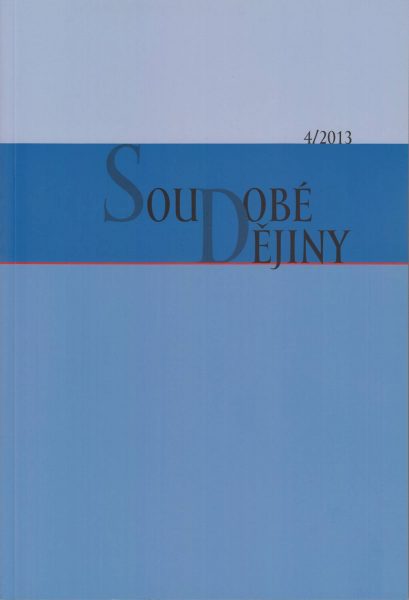Táborové společenství jako „nová rodina“. Německé děti ze „staré říše“ v Protektorátu Čechy a Morava
The Camp Community as a ‘New Family’: German Children from the ‘Old Empire’ in the Protectorate of Bohemia and Moravia
Author(s): Jan Špringl Subject(s): Review
Published by: AV ČR - Akademie věd České republiky - Ústav pro soudobé dějiny
Summary/Abstract: Šustrova, Radka. Pod ochranou protektoratu: Kinderlandverschickung v Čechach a na Moravě. Politika, každodennost a paměť 1940–1945. Prague: Filozofi cka fakulta Univerzity Karlovy, 2012, 315 pp., ISBN 978-80-7308-424-0. The book under review is concerned with the Kinderlandverschickung, a mass operation of the Nazi authorities, which consisted in sending children to the countryside, in order, according to the official explanation, to protect them from enemy air raids, and in the children’s long-term stay and upbringing in closed camp communities. According to the reviewer, the choice of topic and the way it is handled make this publication somewhat of a breakthrough in Czech historiography. Its focus is on a hitherto neglected German part of Protectorate society, and, in its approach, the work links political and social history together with research on everyday life and collective historical memory. It presents an abundantly documented, lively picture of the roots and course of the operation, putting it into the context of the Nazi system of bringing up children, and it seeks to trace how this was experienced by those involved. Lastly, the book considers the formation and institutionalization of some of the participants’ memories long after the war.
Journal: Soudobé Dějiny
- Issue Year: XX/2013
- Issue No: 04
- Page Range: 645-652
- Page Count: 8
- Language: Czech

